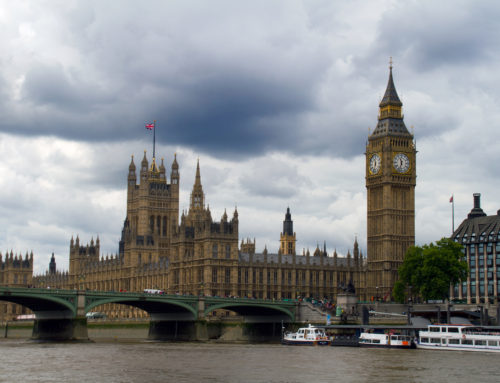Police and Crime Commissioners are here to stay, a fact recognised by over 160 people to date who have declared an intention to stand for election.
I make no judgement on the efficacy of the position, but note that as a significant amount of power is coalesced around a single individual, the nature of the particular person who fills the role is crucial.
Levelling the playing field
I am a great believer in the democratic process, and last June as part of CoPaCC worked to set out our intentions to help provide for a better informed debate – over 10 months ahead of the second PCC elections to be held on May 5th. My contribution to improving debate amongst candidates, and a hopefully enabling the public to make an informed decision was to organise a free-of-charge National Briefing Day for PCC candidates.
Our goal is to level the playing field and ensure that PCC candidates have access to the same kind of information that sitting PCCs do. Not because of any desire for change, but because we are passionate that better preparation will lead to better candidates, as well as better and more informed public debate, and ultimately better outcomes for both the public and the service itself.
‘Computer says no’
It is for this reason I note disappointment in Government departments who chose not to take part in this briefing day, particularly given that many officials note the need for prospective PCCs to fully understand the role that various departments and agencies play as part of and in support of the national policing service. It is also somewhat ironic for such events to be characterised as ‘political’ and therefore not appropriate for support by officials.
Respectfully, I suggest that the civil service recognise that its officials should engage with political roles that it helped to create.
In the eyes of the public, PCCs remain unwanted and unnecessary. Government departments and the Association of Police and Crime Commissioners have a leadership role to play in continuing to embed the importance of the role of PCCs, particularly given the critical importance of achieving a substantially higher voter turnout than in November 2012. Part of that role surely must involve supporting those who are seeking to take up the roles, if only to ensure candidates have their facts straight and can start to think about some of the interminable problems that they will face should they be successful.
Improving public discourse
Whilst local hustings will be undoubtedly by characterised by residents’ concerns around levels of household and personal crime, antisocial behaviour and motoring issues, much of the strategic value that PCCs can add to their police force lies elsewhere. As May 5th draws closer there are fewer opportunities to improve the level of public discourse around policing, and for candidates to have an intelligent debate with the electorate around wider agendas such as collaboration and bluelight integration; whole systems approaches to protecting and managing the most vulnerable in our society; and relationships between the police, their partners and the public they serve.
Public officials, whether elected or not, should strive to engage the wider public, and add to the conversation, thereby fostering a better connection between citizens, their elected officials and with state process. It is unfortunate that a conscious decision to withdraw from such an opportunity has been made. Nonetheless, we press ahead and will continue to provide an established support network to both PCCs and prospective PCCs, as well as independent, objective, evidence-based analysis that can help the electorate make their voting decisions.
Increasing complexity
The Briefing Day itself attracted a broad mix of candidates, representing both major and minor parties and independents. The broad consensus in the room was one of warm optimism, not necessarily because those candidates present had high expectations of being successfully elected, but more so of their collective commitment to the process and their recognition of the importance and privilege of standing for public office.
I have written previously about the factors that voters should look for in our PCCs, and am pleased to report that they were evident in the room. PCCs are local leaders, and it is critical that successful candidates can operate at that level, skilfully and sensitively balancing competing priorities with challenging budgets and the opportunity to make a real difference to their communities and residents.
Furthermore, even as we move into the campaigning phase of the second PCC elections, it is clear that the roles themselves are still developing. The initial intention for PCCs was for them to have been police and justice commissioners, with responsibilities ranging right across the CJS. Whilst this ambition remains, along the way PCCs will additionally pick up further powers around fire, youth justice, probation, court services and schools should the Policing and Crime Bill pass through Parliament smoothly.
The idea of wrapping more powers around a single elected individual was piloted by the London Mayor, with the underlying thinking being that such a role would be able to bring together local services in a more cohesive and effective way, thereby reducing the level of bureaucracy and red tape. Much of the supporting evidence is rooted in the genesis of the Troubled Families programme. In 2011, the then Chief Constable of Greater Manchester Police Peter Fahy said that one single family cost his Force more than £50,000 over 12 months, and reasoned that it would have been cheaper to employ a police officer to live with the family during the period.
PCCs will have to grapple with these interconnected, complex and persistent issues. And in doing so with a fragmented network of partner agencies, Boards and informal decision making networks, and operate within a framework of national legislation and guidance and local strategy and plans that often do not sit comfortably together. And whilst managing all this, PCCs will have to recognise they are but one local leader who is attempting to achieve the same broad set of outcomes at the same time, all of whom are competing for scarce resources and public attention.
This complexity will be business as usual for PCCs, and importantly the challenge of managing this as well as resource and public expectations cannot and must not be sidestepped. As we approach an election it might be understandable for PCCs and candidates to talk about the challenges their Force faces, and what they would achieve as PCCs, but they will also need to articulate very clear strategies for achieving these goals.














Leave A Comment